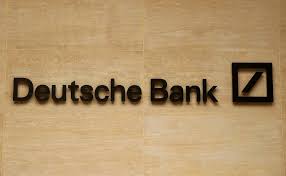Deutsche Bank Agrees to Pay $130 Million to Resolve FCPA and Fraud Cases (Part I of II)

Deutsche Bank, the infamous German bank connected to President Trump, settled FCPA and fraud cases with the Justice Department and the SEC, and agreed to pay a total of $130 million. The settlement included resolution of fraud charges against Deutsche Bank relating to a commodities fraud scheme, commonly referred to as “spoofing.”
Under the global resolution, Deutsche Bank agreed to pay: (1) criminal penalties of $85,186, 206; (2) criminal disgorgement of $681,480; (3) victim compensation of $1,223,738; and (4) $43,329,622 to the SEC. The total payments was slightly more than $130 million. Deutsche Bank agreed to a three-year deferred prosecution agreement. DOJ filed a two count criminal information, charging Deutsche Bank with one count of conspiracy to violate books and records and internal accounting controls and one count of conspiracy to commit wire fraud affecting a financial institution.
Deutsche Bank has been in the cross-hairs of a number of government investigations and prosecutions. In 2015, Deutsche Bank settled LIBOR-rigging charges with the Antitrust Division for approximately $775 million. DOJ appointed a corporate compliance monitor. In 2019, Deutsche Bank settled FCPA charges with the SEC for $16 million for hiring relatives of foreign officials. In 2017, Deutsche Bank resolved fraud violations from its mortgage backed securities for $7.2 billion. It agreed to hire another separate compliance monitor in that settlement. Deutsche Bank has another corporate monitor hired for OFAC sanctions violations.
The FCPA Case
Between 2009 and 2016, Deutsche Bank conspired to violate the FCPA books and records provisions to conceal payments to Business Development Consultants (BDCs) and misrepresented the purpose of payments to BDCs and falsely characterizing payments to others as payments to BDCs. In addition, Deutsche Bank employees conspired to fail to implement internal accounting controls by not conducting due diligence regarding BDCs, making payments to BDCs who were not under contract and making payments to BDCs without invoices or adequate documentation of services actually performed.

Applying the Justice Department’s Corporate Enforcement Policy, Deutsche Bank did not receive credit for voluntary disclosure for the FCPA violations, and received full credit for its cooperation with the FCPA investigation. Deutsche Bank engaged in remedial measures, including: conducting a robust root cause analysis, enhancing its accounting controls, its anti-bribery and anti-corruption program, and its BDCs program on a global basis; reducing the number of BDCs used; imposing a requirement that the Anti-Fraud, Bribery and Corruption function (AFBC) approve and a member of the Management Board support, any new BDC arrangement; reviewing BDCs on an annual basis; instituting enhanced due diligence related to BDCs; instituting enhanced anti-bribery training; and disciplining and terminating certain employees.
DOJ did not impose a corporate monitor given Deutsche Bank’s remedial measures and its existing corporate monitorship imposed for criminal violations imposed for LIBOR antitrust violations.
The Commodities Trading Case
Between 2008 and 2013, Deutsche Bank precious metals traders engaged in a scheme to defraud traders on the New York Mercantile Exchange, Inc. and Commodity Exchange, Inc., through which traders in New York, Singapore and London engaged in “spoofing,” placing orders to buy and sell precious metals futures contracts with the intent to cancel the orders before execution. Deutsche Bank agreed to pay a total of $7,530,218 for the commodities scheme, which would be credited against Deutsche Bank’s payment of a $30 million civil penalty to the CFTC to resolve regulatory violations relating to the same conduct.

Applying the Justice Department’s Corporate Enforcement Policy, Deutsche Bank did not receive credit for voluntary disclosure for the commodities violations, and received full credit for its cooperation with the fraud investigation. The conduct at issue preceded Deutsche Bank’s 2015 DPA relating to the LIBOR price-fixing and deceptive trading practices. Deutsche Bank enhanced its commodities trading compliance program and internal controls under the independent compliance monitorship.
Based on all of the factors for both the FCPA case and commodities trading case, DOJ applied a 25 percent discount from the middle of the Sentencing Guidelines range, rather than from the middle of the range, to reflect Deutsche Bank’s prior misconduct.















